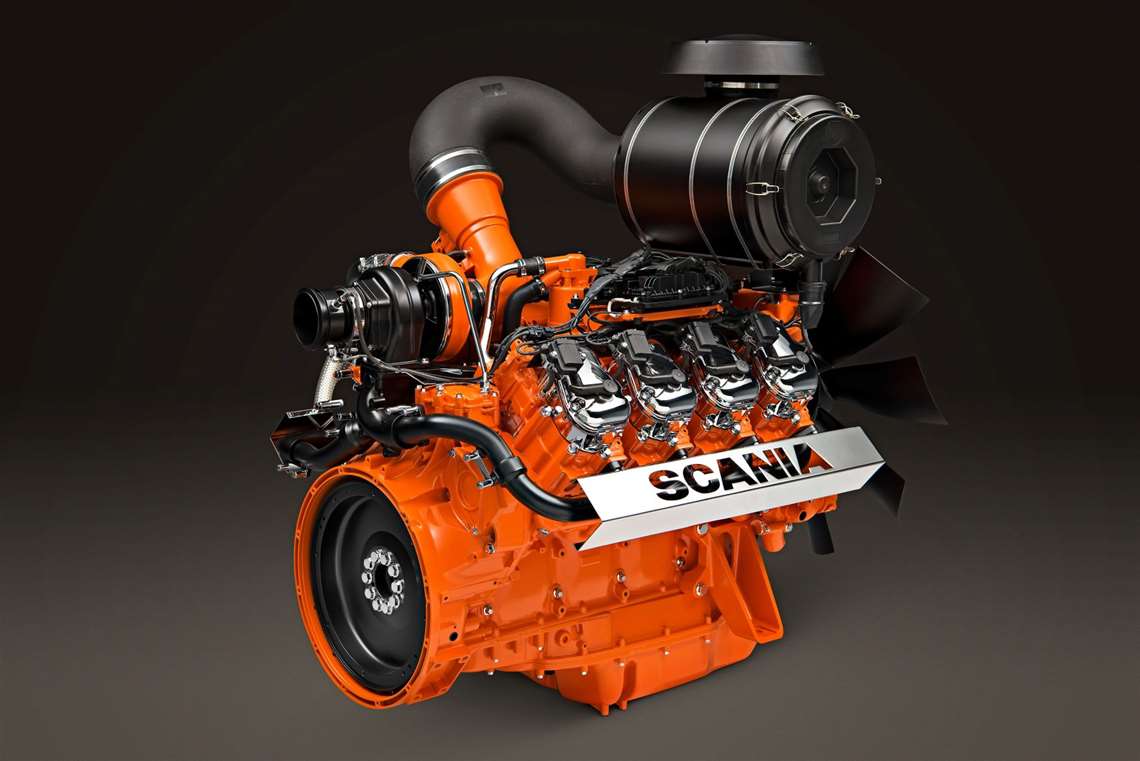Scania’s 2020 income battered by the pandemic
10 March 2021
Company reports slump in income but said it remains focused on decarbonising its product portfolio
Net sales and operating income were hit hard in 2020 at Scania as COVID-19 took its toll.
Unveiling its summary for 2020 the Swedish-headquartered truck, bus and engine company said operating income decreased by 49% whilst net sales decreased by 18% compared with the previous year.
 A Scania engine. The company’s income was affected by COVID-19 during 2020.
A Scania engine. The company’s income was affected by COVID-19 during 2020.
However, in the fourth quarter, net sales decreased by 6% and operating income increased by 1%
Henrik Henriksson, President and CEO said: “The year 2020 was dominated by the pandemic and we fought hard to support our customers with services and parts to ensure that they could keep their businesses going.
“Naturally, our priority was also to manage the operational and financial impacts on our own business as we faced fluctuations in demand and disruptions in the supply chain as a result of COVID-19.
“We quickly managed to hit the brakes on costs and preserve cash as the pandemic started to impact order intake and delivery capacity. The pandemic also accelerated the need for structural cost reductions in view of Scania’s long-term ambitions.
“To be able to continue making large-scale investments in new technologies that support the transformation to sustainable transport, painful but necessary decisions had to be taken, resulting in the closure of production facilities and staff reductions.”
However, Henriksson said that towards the second half of 2020, demand for trucks started to rebound strongly, while it remained weak for buses and coaches.
He added: “In the fourth quarter of 2020, vehicle deliveries were almost back to the previous year’s level. Cash flow in Vehicles and Services was strong thanks to Scania’s demand-driven output principle in production and efficient inventory management.
“Our structural cost transformation efforts continued in the fourth quarter. In Financial Services, customers’ need of rescheduling their payments of financial contracts returned to more normal levels in the second half of 2020 and by the fourth quarter, the vast majority of our customers had returned to their previous payment plans.”
He said that order intake for trucks increased by 55% in the fourth quarter compared to the year-earlier period.
Henriksson added: “After a tough start of last year we are now in a position of strength with a good cost structure ready to leverage the rising demand. However, the situation in the supply chain is strained in many areas, which is causing production disruptions and increased costs. The ongoing COVID-19 pandemic also adds uncertainty.
“Throughout this turbulent year, we remained focused on our commitment to decarbonise our product portfolio. Scania’s ability to deliver in the present moment, while at the same time developing tomorrow’s fossil-free transport system was put to the test during 2020.
“In September, we launched our first fully electric truck range, which will play a key role in reaching Scania’s science-based climate targets. We have also committed to bringing our customers at least one new electric product application in the bus and truck segment every year.
“By 2025, Scania expects that electrified vehicles will account for around 10% of its total vehicle sales volume in Europe and by 2030 that figure is expected to be 50 percent.”
STAY CONNECTED




Receive the information you need when you need it through our world-leading magazines, newsletters and daily briefings.
POWER SOURCING GUIDE
The trusted reference and buyer’s guide for 83 years
The original “desktop search engine,” guiding nearly 10,000 users in more than 90 countries it is the primary reference for specifications and details on all the components that go into engine systems.
Visit Now
CONNECT WITH THE TEAM









